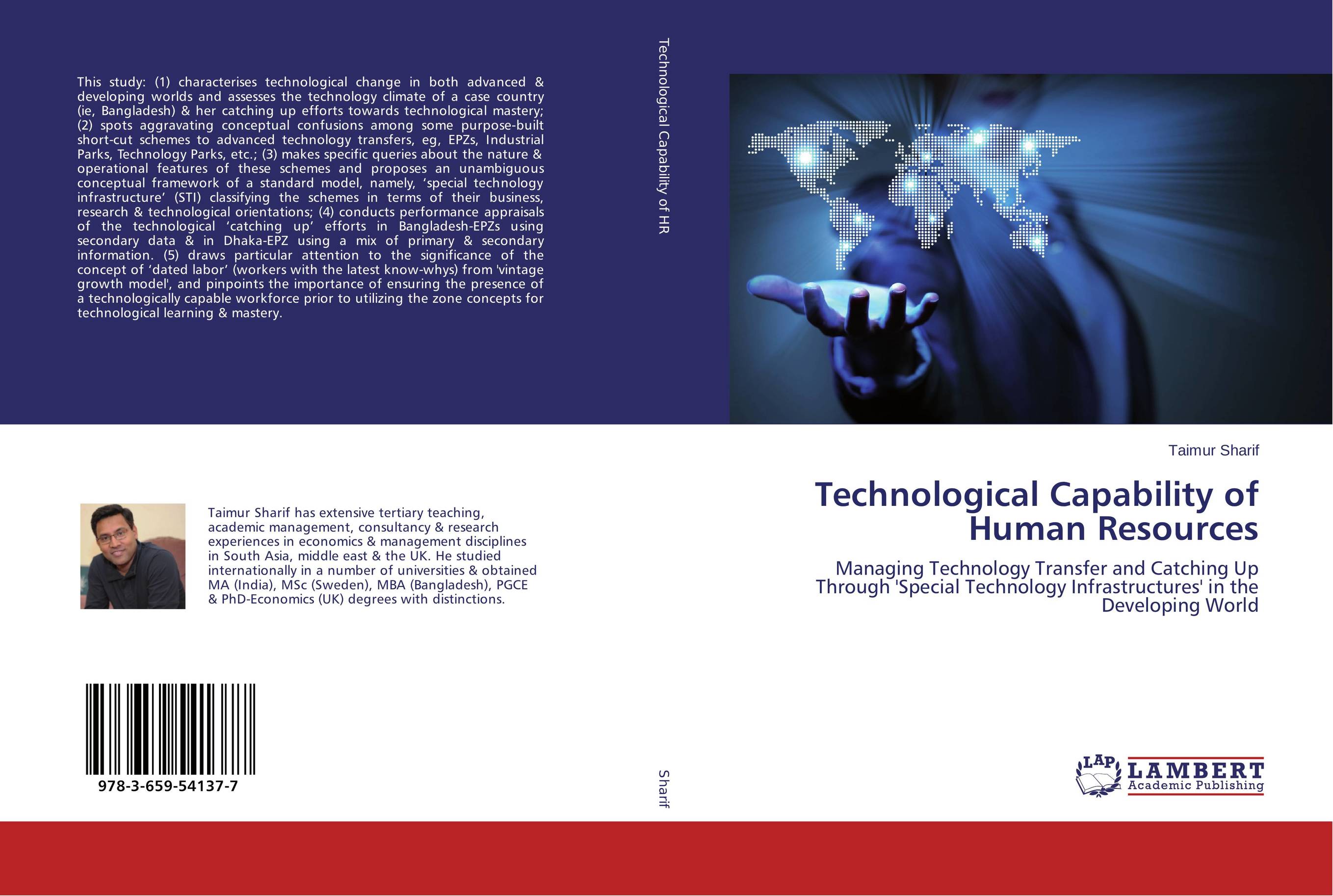| Поиск по каталогу |
|
(строгое соответствие)
|
- Профессиональная
- Научно-популярная
- Художественная
- Публицистика
- Детская
- Искусство
- Хобби, семья, дом
- Спорт
- Путеводители
- Блокноты, тетради, открытки
Technological Capability of Human Resources. Managing Technology Transfer and Catching Up Through 'Special Technology Infrastructures' in the Developing World

В наличии
| Местонахождение: Алматы | Состояние экземпляра: новый |

Бумажная
версия
версия
Автор: Taimur Sharif
ISBN: 9783659541377
Год издания: 2014
Формат книги: 60×90/16 (145×215 мм)
Количество страниц: 536
Издательство: LAP LAMBERT Academic Publishing
Цена: 57540 тг
Положить в корзину
| Способы доставки в город Алматы * комплектация (срок до отгрузки) не более 2 рабочих дней |
| Самовывоз из города Алматы (пункты самовывоза партнёра CDEK) |
| Курьерская доставка CDEK из города Москва |
| Доставка Почтой России из города Москва |
Аннотация: This study: (1) characterises technological change in both advanced & developing worlds and assesses the technology climate of a case country (ie, Bangladesh) & her catching up efforts towards technological mastery; (2) spots aggravating conceptual confusions among some purpose-built short-cut schemes to advanced technology transfers, eg, EPZs, Industrial Parks, Technology Parks, etc.; (3) makes specific queries about the nature & operational features of these schemes and proposes an unambiguous conceptual framework of a standard model, namely, ‘special technology infrastructure’ (STI) classifying the schemes in terms of their business, research & technological orientations; (4) conducts performance appraisals of the technological ‘catching up’ efforts in Bangladesh-EPZs using secondary data & in Dhaka-EPZ using a mix of primary & secondary information. (5) draws particular attention to the significance of the concept of ‘dated labor’ (workers with the latest know-whys) from 'vintage growth model', and pinpoints the importance of ensuring the presence of a technologically capable workforce prior to utilizing the zone concepts for technological learning & mastery.
Ключевые слова: Bangladesh, technology transfer, human development, East Asia, EPZ, Technology Park



